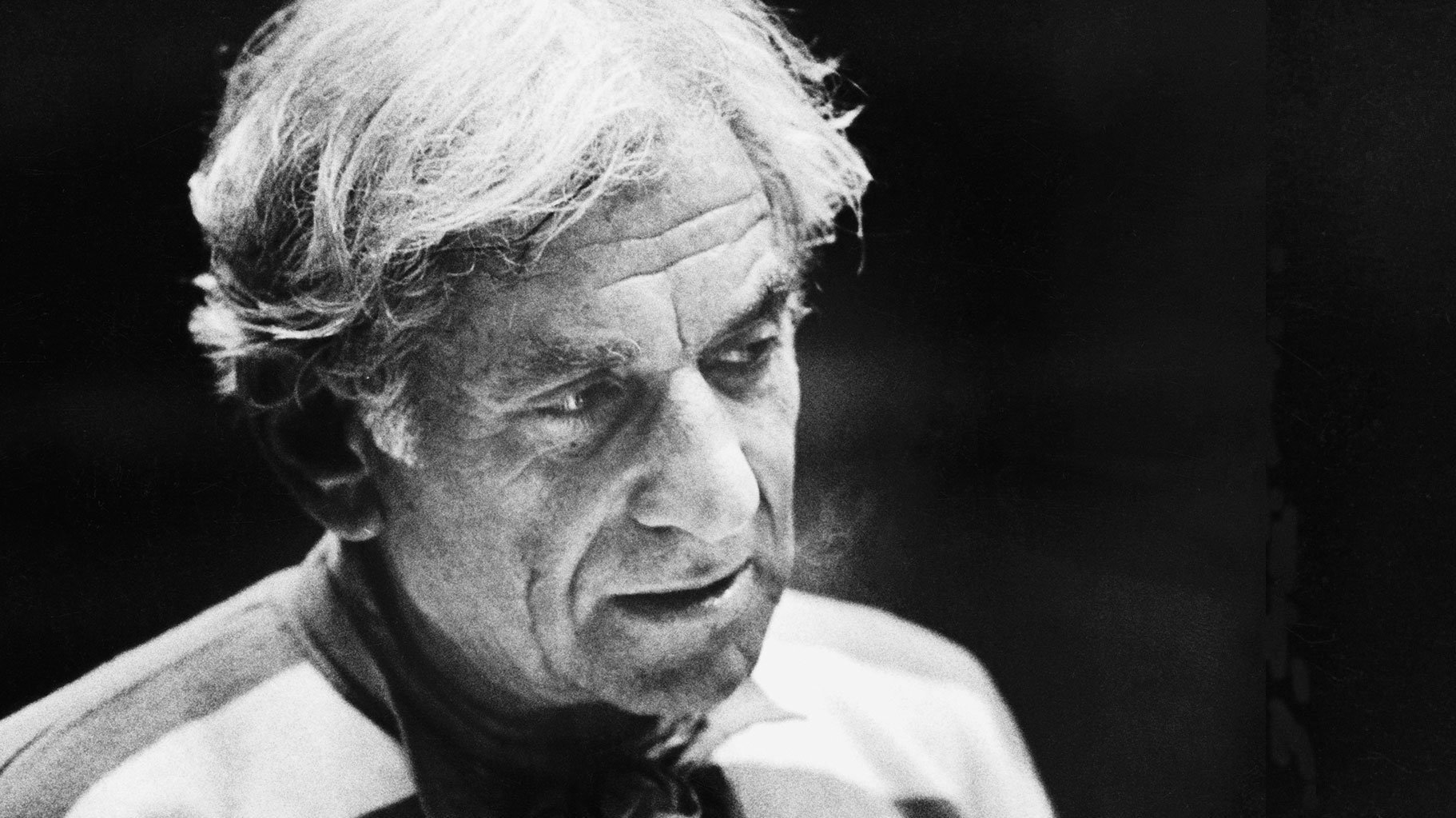- History
- Orchestra History

Leonard Bernstein, who would have been 100 years old on 25 August 2018, collaborated with the Berliner Philharmoniker only once: in 1979, he gave two concerts as part of the Berliner Festspiele in which he conducted Mahler's Ninth Symphony. The then director of the festival, Ulrich Eckhardt, who was instrumental in the realisation of this performance, remembers the spectacular coup.
“The long struggle for human rights is still ongoing. It is now more important than ever that we get involved in this fight wherever in the world these rights are denied. I sincerely hope that this concert will inspire many other similar activities for freedom.” – so wrote Leonard Bernstein after we confirmed his engagement for the two concerts of the 29th Berliner Festwochen with Mahler’s Ninth Symphony and the Berliner Philharmoniker on 4 and 5 October 1979, and agreed that they would be dedicated exclusively to Amnesty International.
A special event
His arrival for the preparations a week before: a tempest drove through the Philharmonie, sweeping away habits and ingrained rituals. Orchestra members and organisers experienced a completely different, refreshing atmosphere in their work and their dealings. Only those who were present can appreciate how radically different rehearsals with Bernstein were – vivid descriptions of these can be read in the memoires of Hellmut Stern and Peter Brem. Astonishment and bewilderment soon turned to devotion; the extension of working hours was willingly accepted.
It is known that Herbert von Karajan closely followed the path of his opponent in the symphonic greats – especially when it came to Mahler. Neither of the two regarded the other as a friend, but they respected each other and there was no animosity. Although he had long been considered a world star, the fact that Bernstein had never previously appeared as guest conductor of “his” (Karajan’s) Berliner Philharmoniker was by no means the result of any decision taken on the part of Karajan.
However, that it happened at all borders on the miraculous – a miracle based on a very fortunate constellation of people and events: the orchestra’s managing director Wolfgang Stresemann – who was certainly acquainted with Bernstein during his years of exile in the USA as Bruno Walter’s assistant and chief conductor in Toledo (Ohio) – invited him to Berlin on several occasions. But the inflexible Stresemann stuck firmly to his principle that guest conductors should appear in subscription concerts. Bernstein had an aversion to the traditional structures of concert life with its obligatory subscriptions, fearing a lack of enthusiasm for the event, and insisted just as relentlessly on non-subscription concerts with ticket sales open to everyone – which corresponds to the principle of festivals.
Fortunate constellation
And so the first foundation stone was laid. But a personal relationship still had to come into play: Dorothee Koehler – who I had already been closely associated with in Bonn and then the Berliner Festwochen, where she later worked – had just taken over representation for Bernstein in Europe; they knew each other from the artistic alliance with Deutsche Grammophon, at that time a musical world power. And when, thirdly, the homage to Amnesty International was added, the pact was quickly sealed. All proceeds flowed into Amnesty’s work, and Bernstein waived his (not inconsiderable) fee. In this exceptional case, it was once more a blessing that the Berliner Festwochen (in accordance with the then existing contractual arrangements) had control of the programme in the Philharmonie during the weeks of September; the orchestra (including its chief conductor) played in the service of the Festival, and its director decided on works, soloists and conductors.
It remains unclear to this day why a renewed collaboration between the orchestra and Bernstein never became possible. Fault cannot lie with the orchestra, because in the expansive and intense rehearsals, a true fire of understanding was kindled which brought out the best in its performance. It is neither established nor demonstrable that Karajan directly prevented the return of Bernstein.
Epilogue
An unhappy epilogue: Christmas 1989 – the Berlin Wall had fallen, and Karajan had died in July. As a homo politicus, Bernstein was drawn to the place where world history, the ending of East-West confrontation, was taking place. He wanted to perform Beethoven’s Ninth on this occasion and suggested the choir sing “freedom” instead of “joy”. As the incumbent managing director of the Philharmoniker, I received his request as to whether the Berliner Philharmonische Orchester (as it was then called) was available. It would have been the second encounter – but it did not materialise.
Bernstein did not abandon his plan and succeeded in performing the unavoidable (freedom) Ninth in the East Berlin Schauspielhaus as well as in the Philharmonie with a symphony orchestra built around the Symphonieorchesters des Bayerischen Rundfunks, with which he was associated, plus guests. Bernstein died in October 1990. For him, these Berlin twin concerts were highly symbolic of his lifelong political commitment. Those who experienced him at that time were deeply impressed by the dignity and the pathos that testified to his belief in a better world and his hope for world peace.
Bernstein’s works with the Philharmoniker
The works of Leonard Bernstein were added late to the repertoire of the Berliner Philharmoniker. In 1992, a piece by the American composer was heard in a Philharmoniker concert for the first time: Age of Anxiety with Jeffrey Siegel as the soloist and Leonard Slatkin conducting. In the years that followed, the Candide overture and the symphonic dances from West Side Story were frequently included in programmes for the Waldbühne and New Year’s Eve concerts. In June 2018, the orchestra performed Symphony No. 2 The Age of Anxiety under the baton of its departing director Sir Simon Rattle (soloist: Krystian Zimerman). When the Philharmoniker travel to Asia in November 2018, the tour programme will include Bernstein’s Symphony No. 1 Jeremiah and his Divertimento for orchestra.